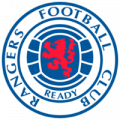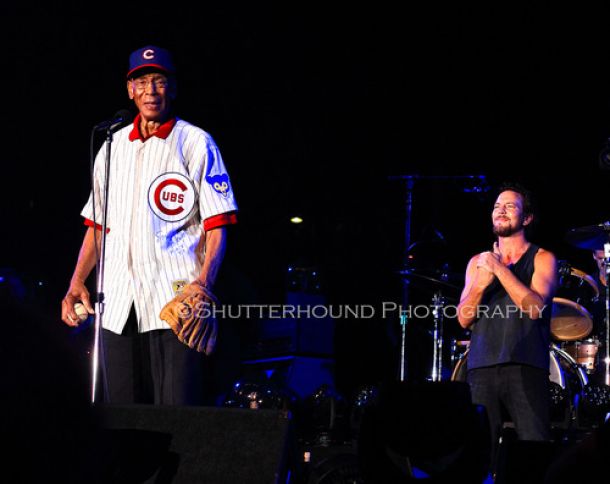Casual baseball fans may not have heard the name Ernie Banks. He was a baseball player who spent his entire career (1953-71) with the Chicago Cubs. Ernie Banks, who would have turned 84, on January 31, died of a heart attack on January 23, 2015. His representative, Mark Bogen stated, "Ernie Banks was a wonderful husband, a great father and grandfather….People have called Ernie Banks the ambassador of baseball, but in reality, he was the ambassador for humanity."
Visitation for Ernie Banks will be held from 12:00 to 8:00 p.m. on Friday, January 30, at Fourth Presbyterian Church, located at 126 E. Chestnut St. in Chicago. A memorial service will be held at the church at 10 a.m. Saturday, January 30. There will be limited public seating available. The Banks family has created a Facebook page called "Ernie Banks Remembered" for fans to celebrate his life.
Due to Wrigley renovations, the Ernie Banks statue that stood at Wrigley Field, was in storage, but it has recently been installed in Daley Plaza (50 W. Washington Street), where it will stand from January 28 until January 31 as a public memorial for fans who want to honor the Hall of Famer's life. Tom Ricketts, the Cubs Chairman of the Board, said the team will announce plans to honor Banks at a later date. The team is expected to wear a patch on their 2015 uniforms in Banks's memory.
For much of Banks's career, the Cubs were a last place team, but not for lack of trying on his part. In 1958 and 1959, Banks was the first National League player to be awarded back-to-back N.L. Most Valuable Player Awards. In 1958, he hit .313 and led the National League with 47 home runs and 129 runs batted in. The following year, 1959, he hit .304 with 45 home runs and 143 runs batted in. However, the 50's and 60's featured Hall of Fame players on every team, and although the Cubs had three of their own (Billy Williams, Ron Santo, and Banks), they did not have the Hall-of-Fame pitching to go with them.
Yet, any fan who has ever listened to or met Ernie Banks would have thought he had lived a charmed life despite the reality of it. Banks grew up very poor during the depression in Texas. He was drafted into the United States Army in 1951, during which time he injured his right knee. Upon his release, two years later, he played for the Kansas City Monarchs of the Negro Leagues.
In 1953, he signed with the Cubs. He was the first Cubs African-American player. He faced racism in the 1950’s like all African-American players of the time. Fans, though, never would have known because Banks was the consummate optimist. He always had a kind word or a smile to share.
In 1972, Banks's uniform number, 14, was the first Cubs uniform number ever to be retired. A flag with his retired uniform number flies out in left field near Waveland Avenue, where many of his home runs landed. In 2008, Banks became the first player in Cubs history to be honored with a statue at Wrigley Field. The statue portrays him at bat, smiling. He left an amazing legacy.
Banks, AKA "Mr. Cub," finished his career as the “greatest Cubs player” in history. He ended his career with a .274 batting average, 2,583 hits, 512 home runs and 1,636 runs batted in. He holds Cubs’ team records for games played (2,528), at-bats (9,421), extra-base hits (1,009), and total bases (4,706). He was inducted into the National Baseball Hall of Fame in 1977 as a first-ballot nominee.
Most improbably, Banks literally was beloved by everyone he ever met. One cannot meet reporters or fans in Chicago who do not have an Ernie Banks story filled with warmth and good will. The mayor of Chicago, Rahm Emanuel, issued a statement saying, "Ernie Banks's legacy extends far beyond his Hall of Fame stats; he was beloved by generations of people for the way he played on the field and -- more importantly -- for the kind and warm person he was off the field.” Emanuel went on to call Banks a friend and a great ambassador for the Cubs, Major League Baseball, and the city of Chicago.
Ernie Banks was truly iconic in Chicago; he participated in USO programs, rode a float in the Chicago Gay Rights parade, sang with Eddie Vedder and Pearl Jam, and worked with the Special Olympics.
As Mark Bogen stated Sunday in a prepared statement, "Ernie Banks was a kind, loving, positive man who cared about people.... One of his favorite quotes was, 'Life is a song; sing it. Life is a game; play it. Life is a challenge; meet it. Life is a dream; realize it. Life is a sacrifice; offer it. Life is love; enjoy it now.'"
Donations in Banks's memory can be made to Cubs Charities, 1060 W. Addison St., Chicago, IL 60613, or by going to www.cubs.com/give and clicking "Make a Donation."










































